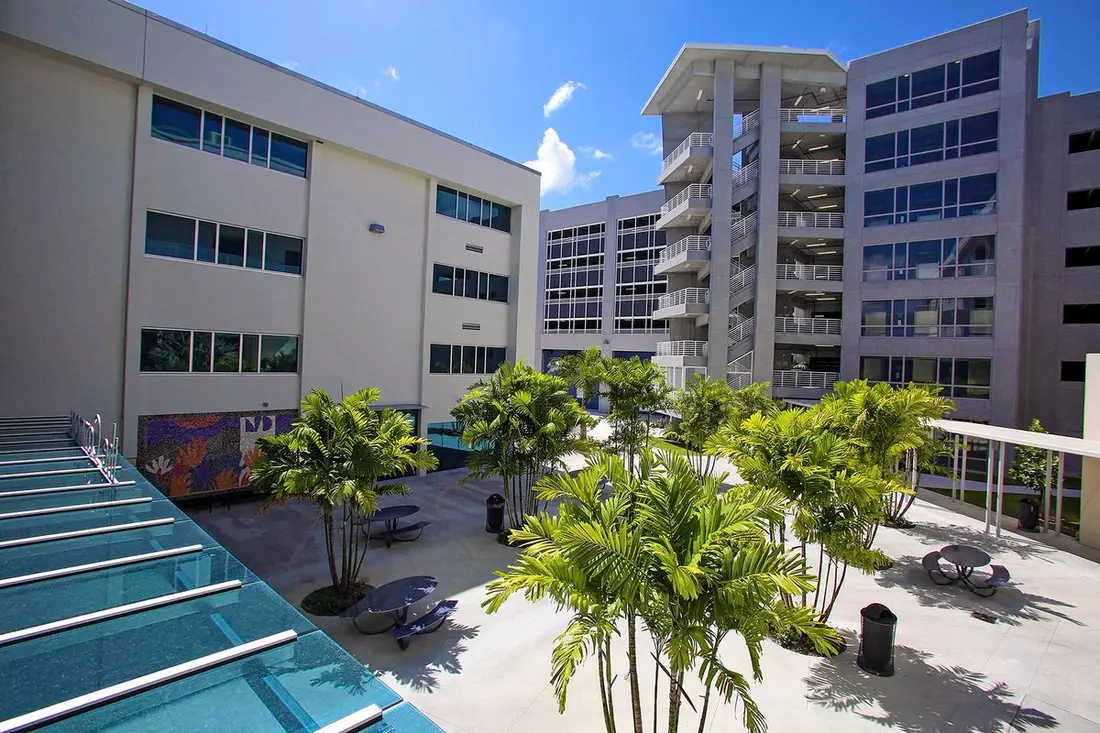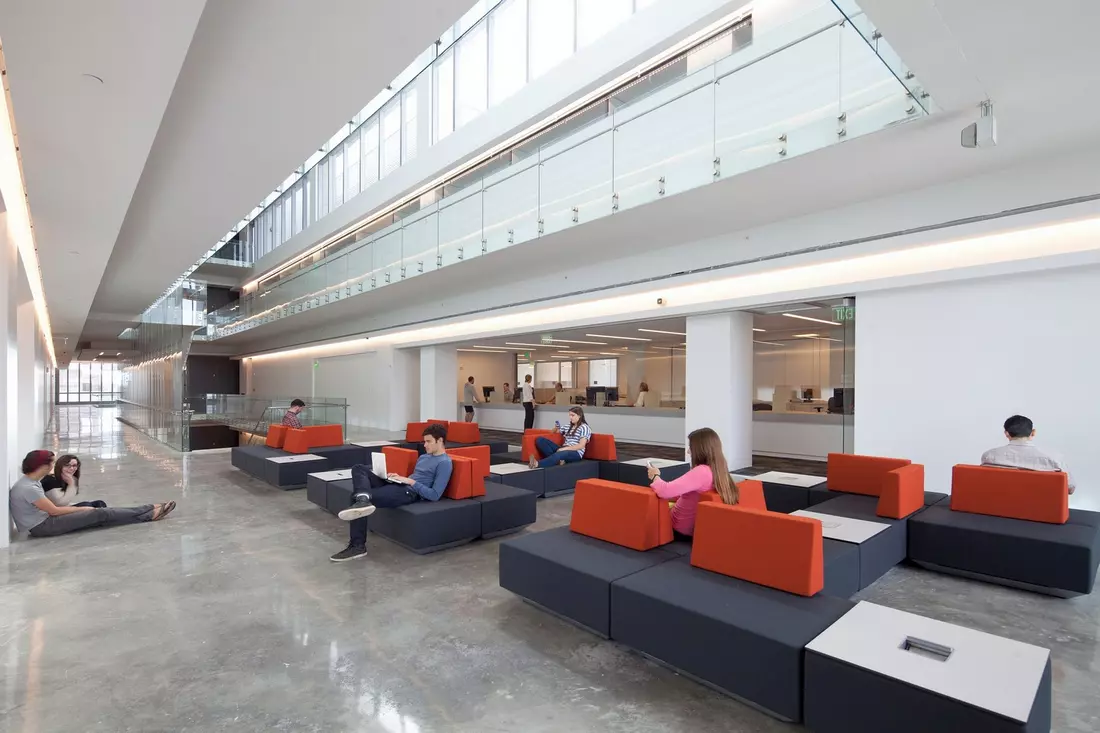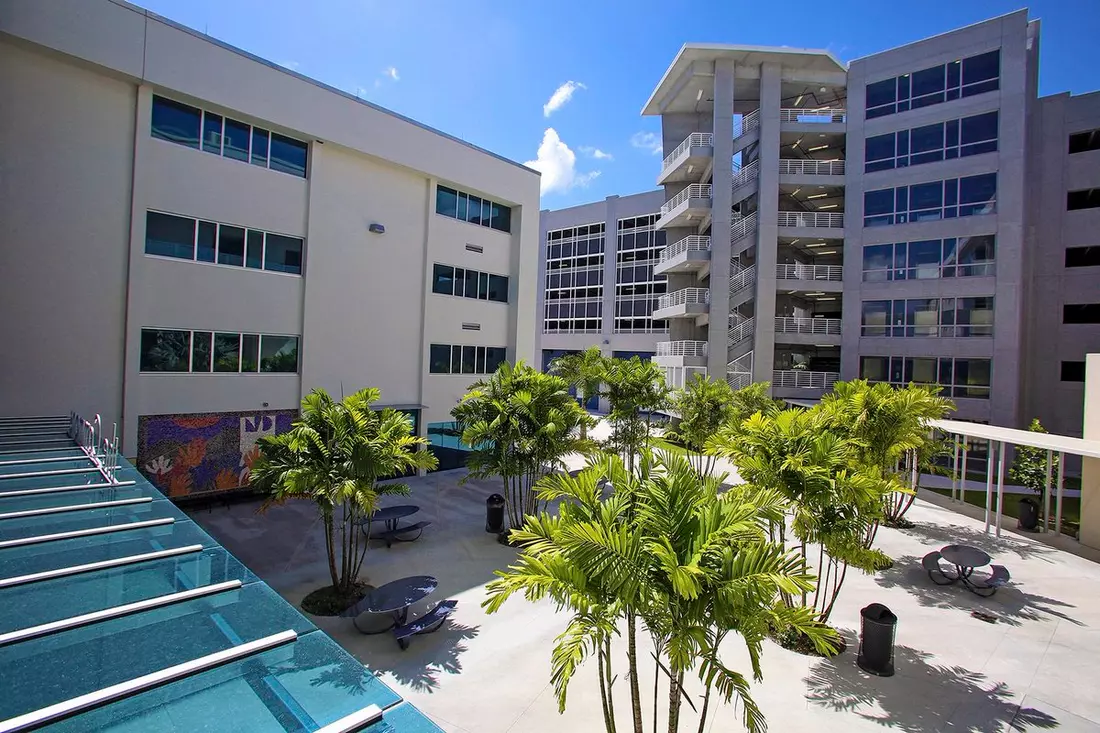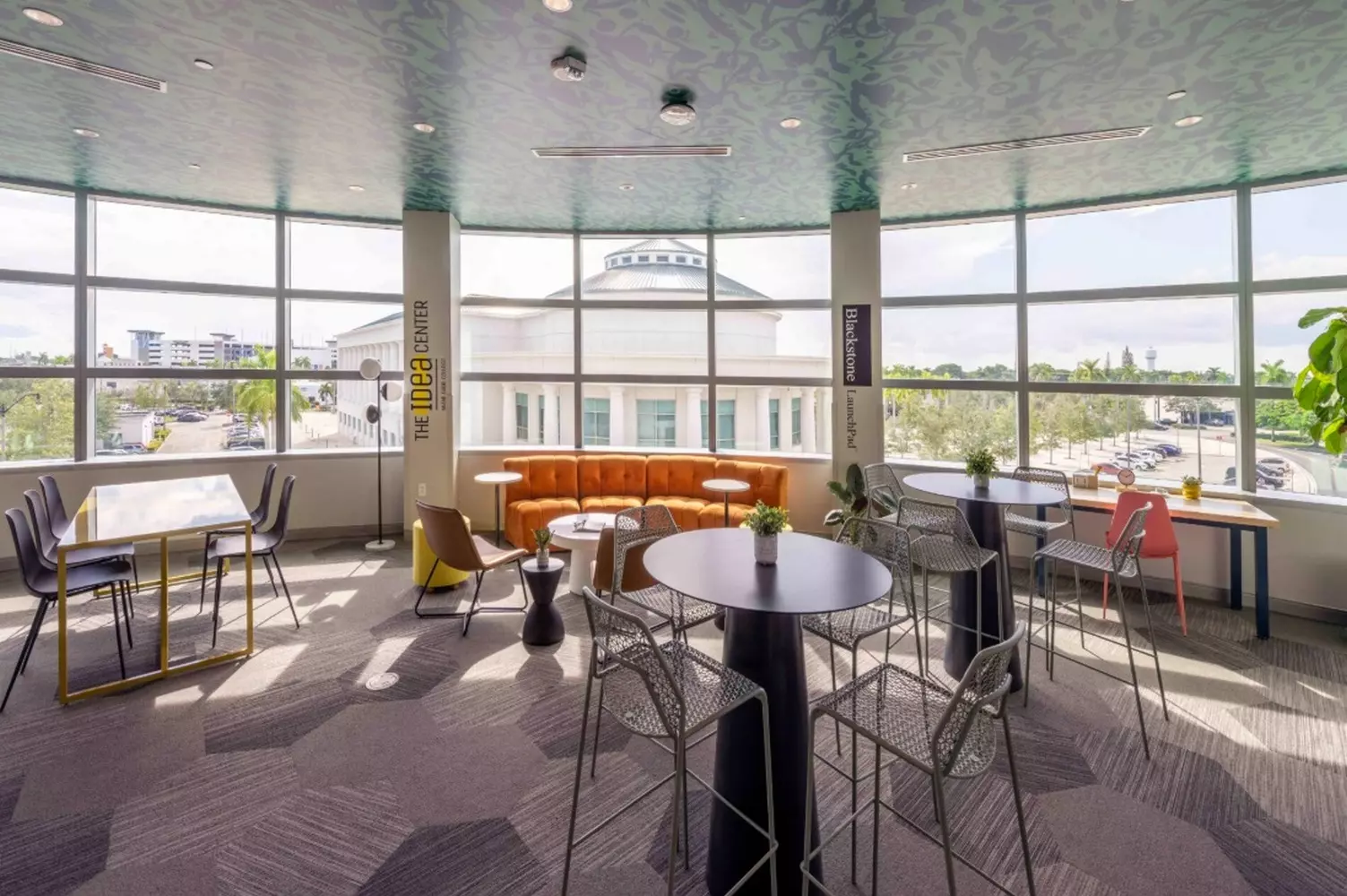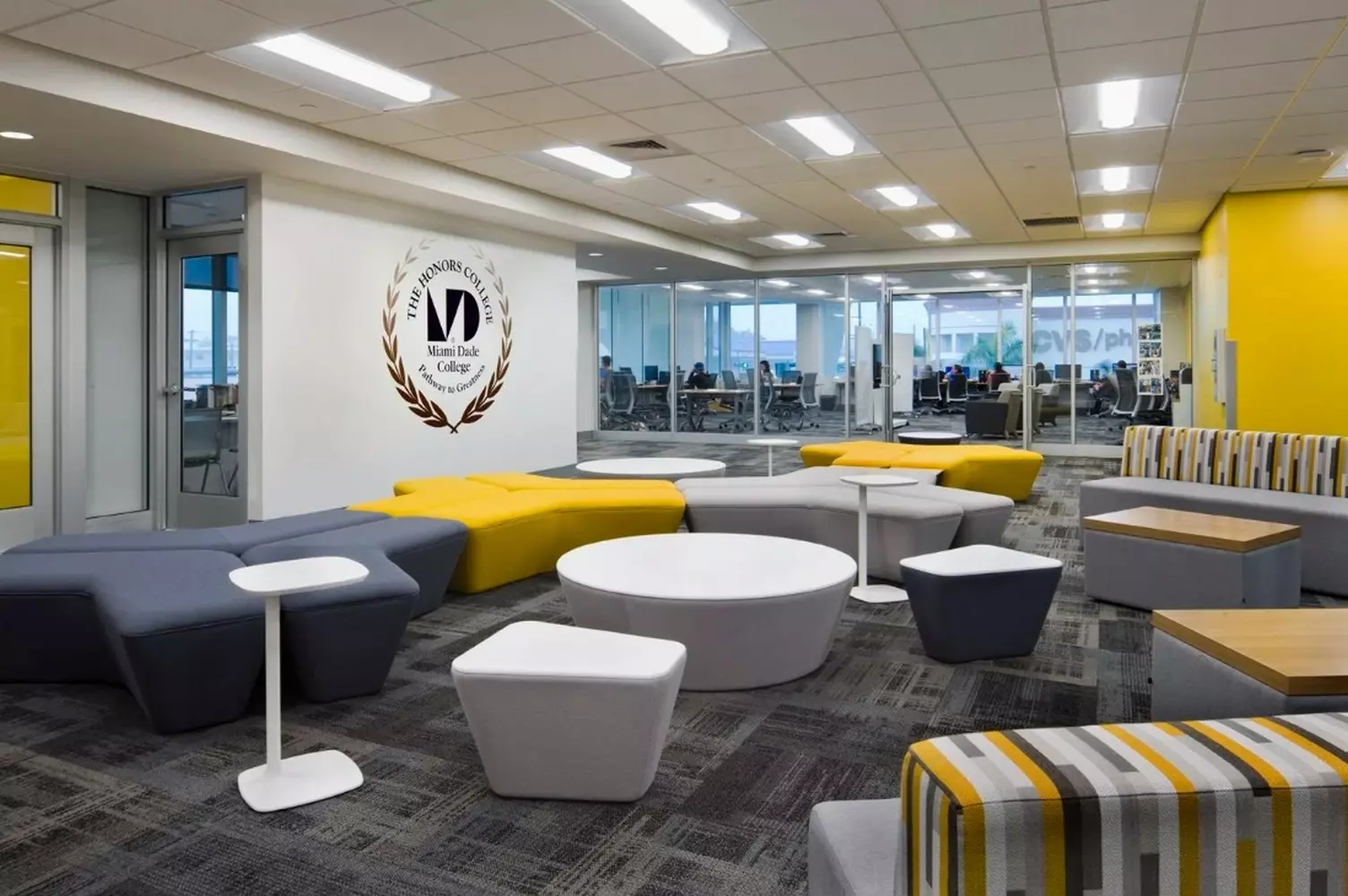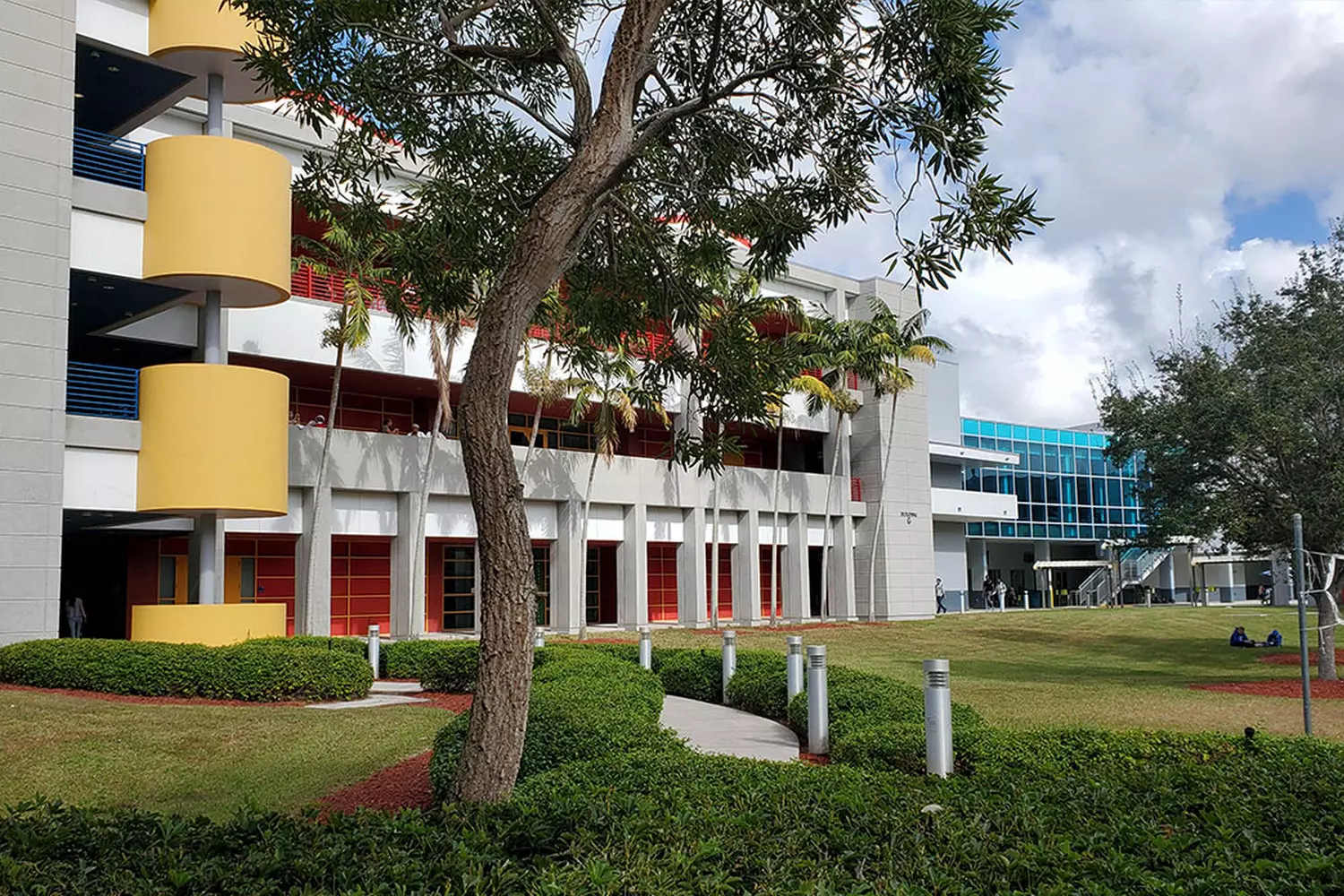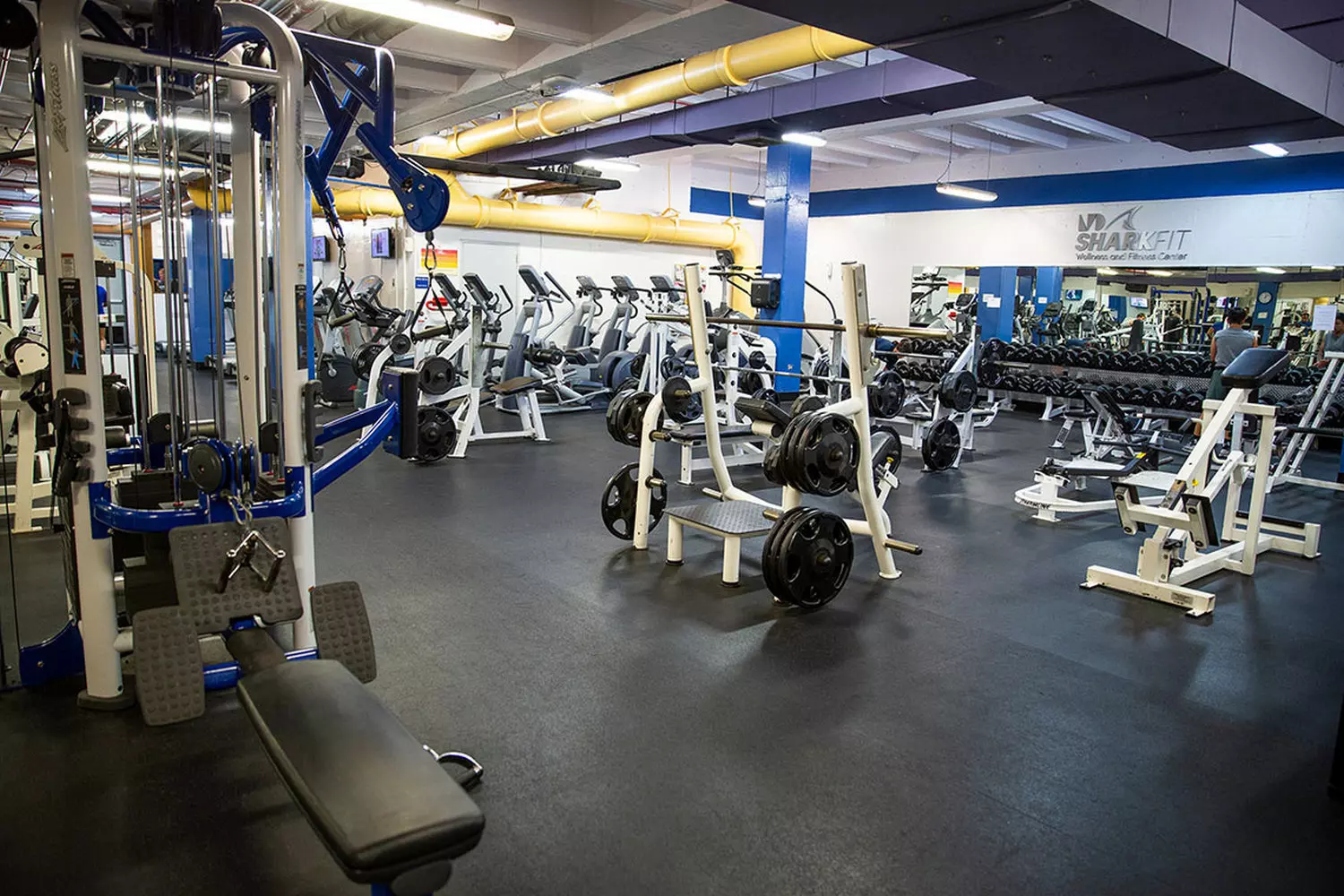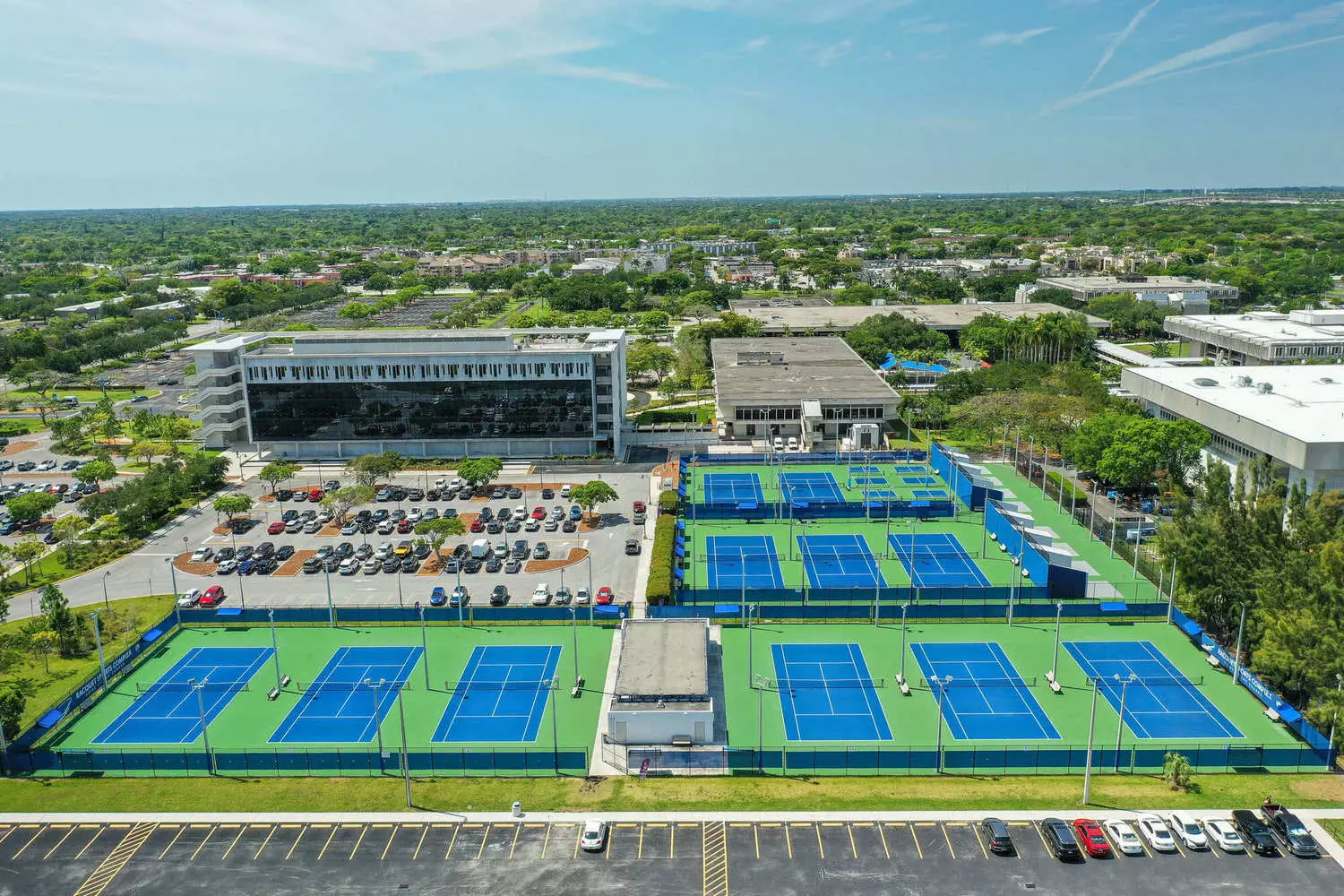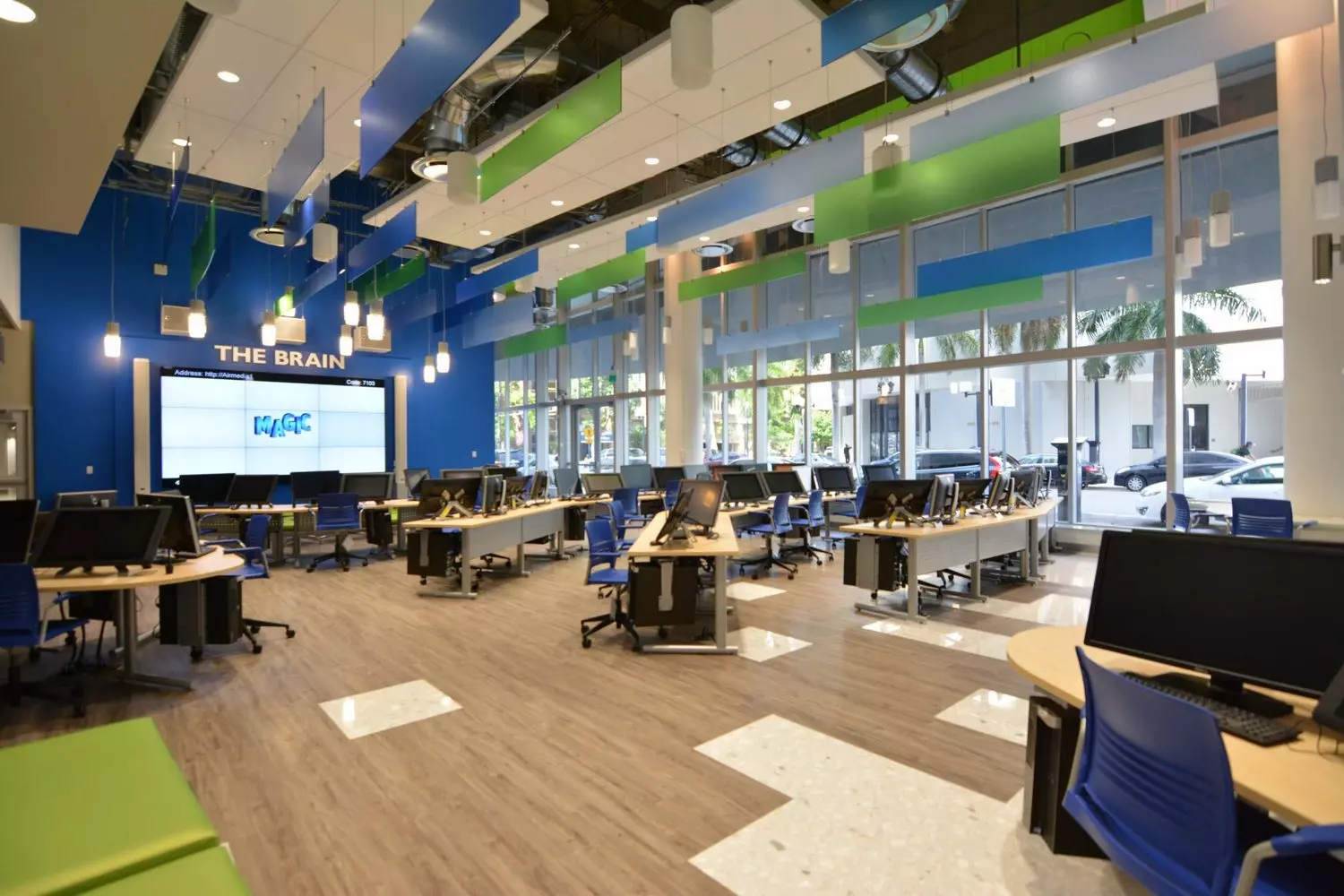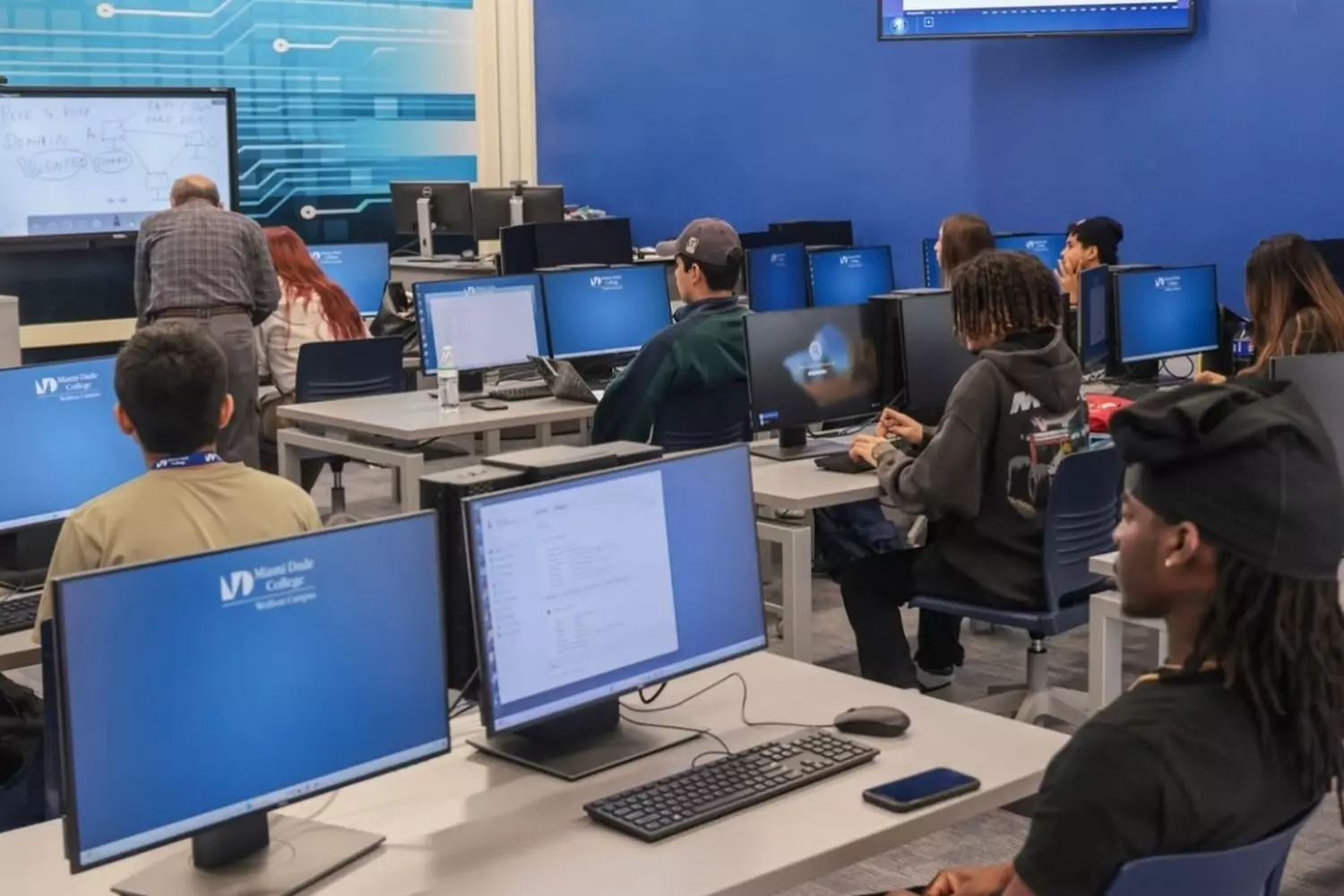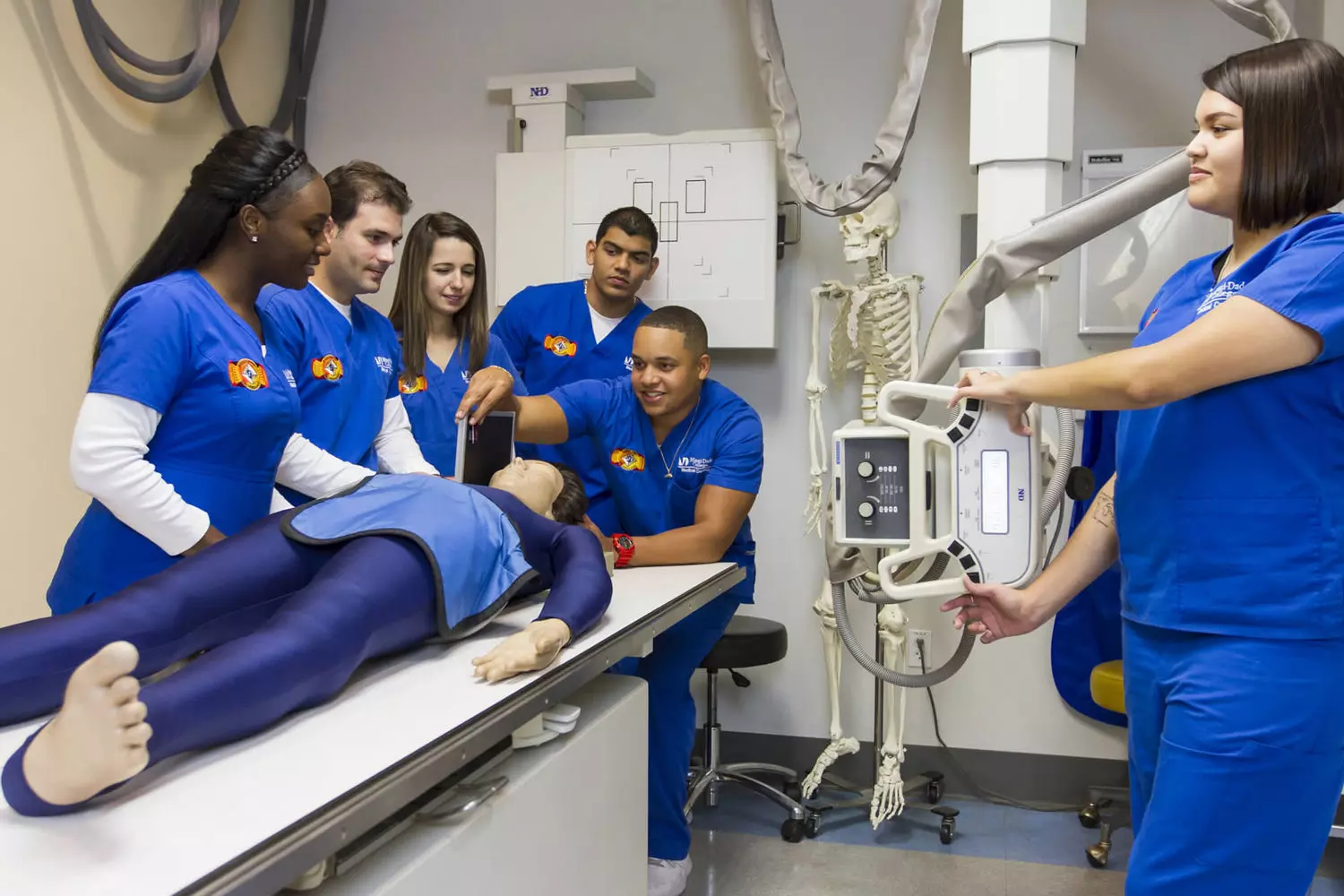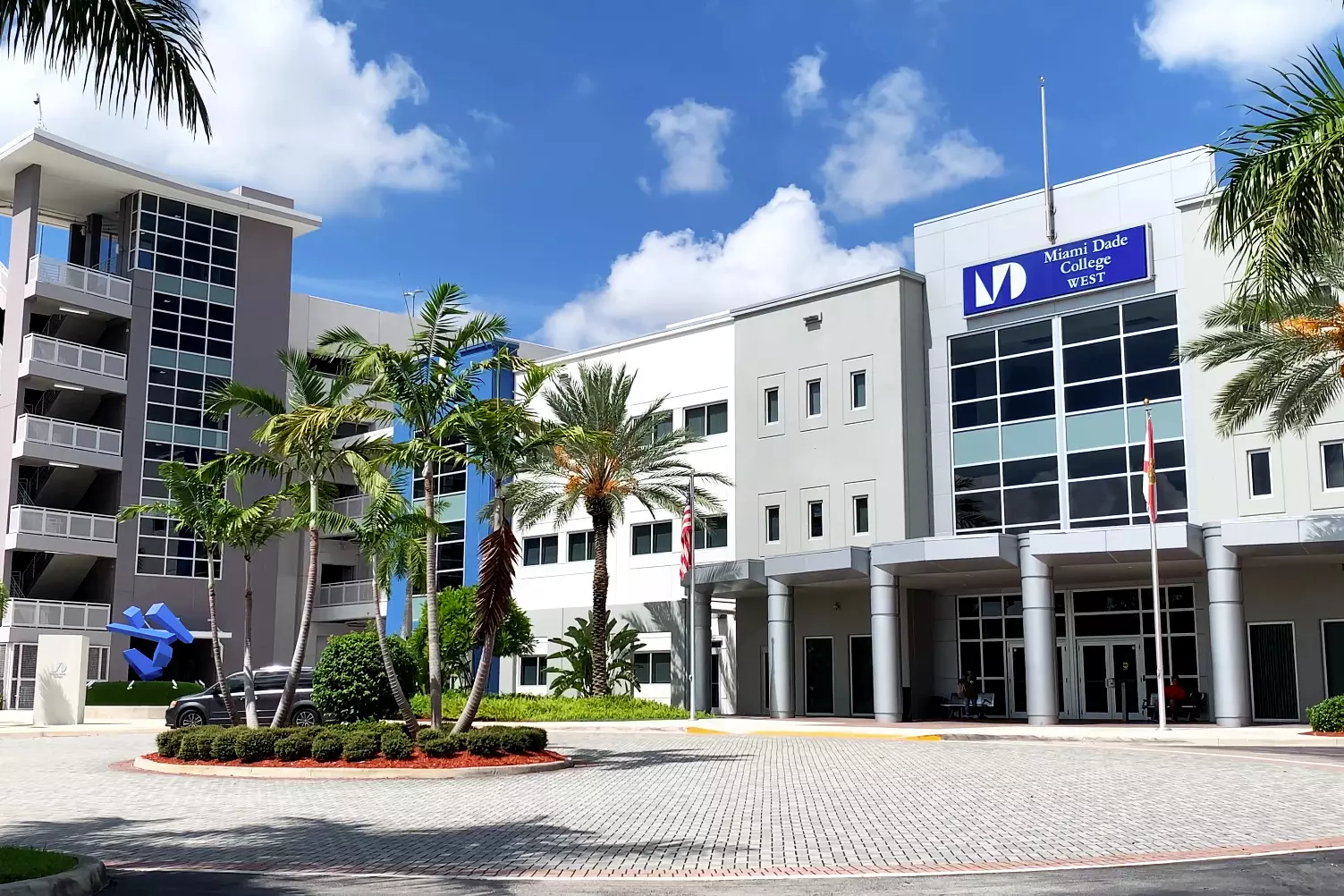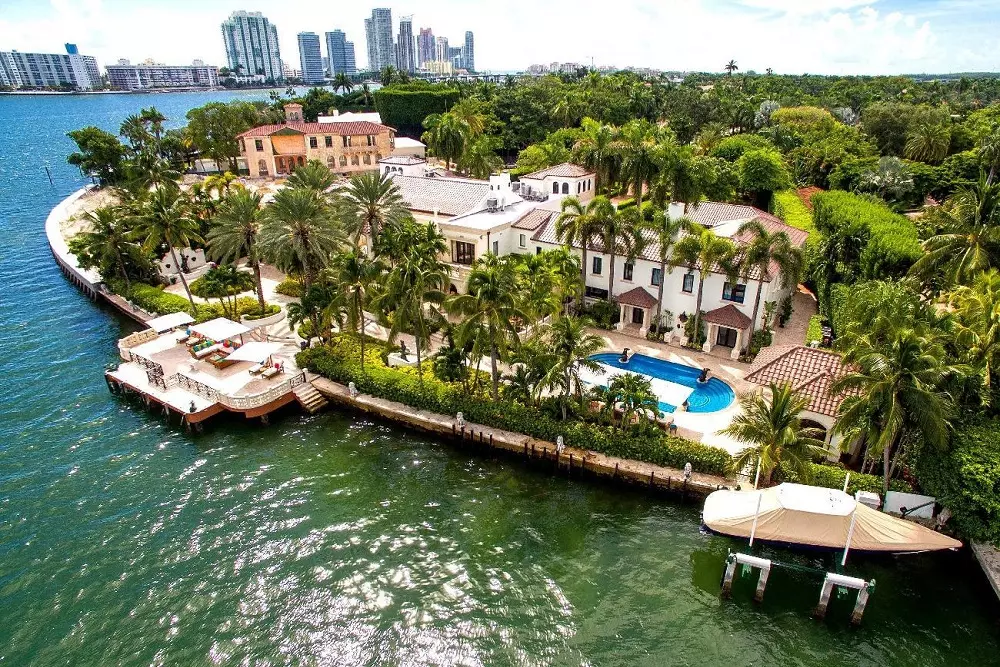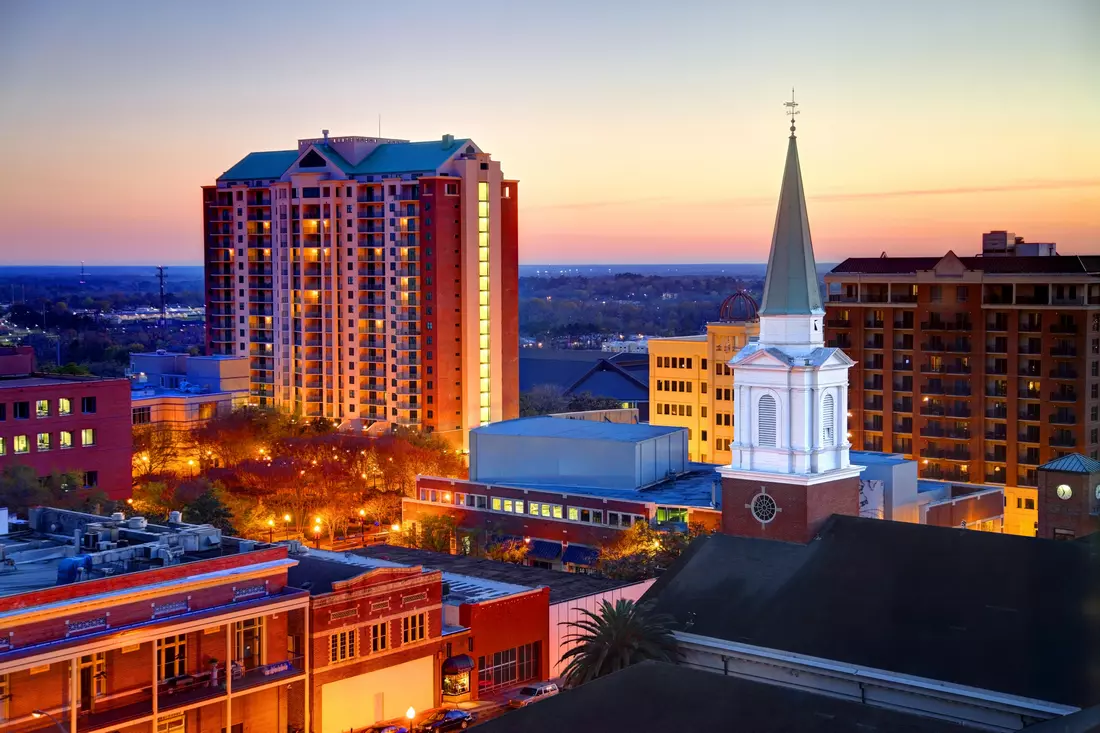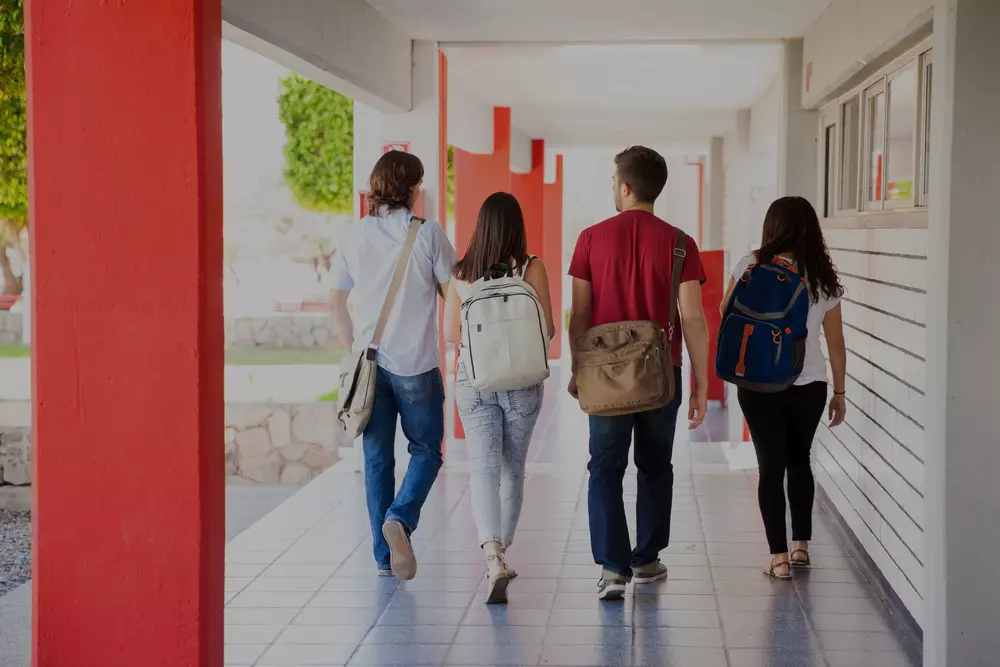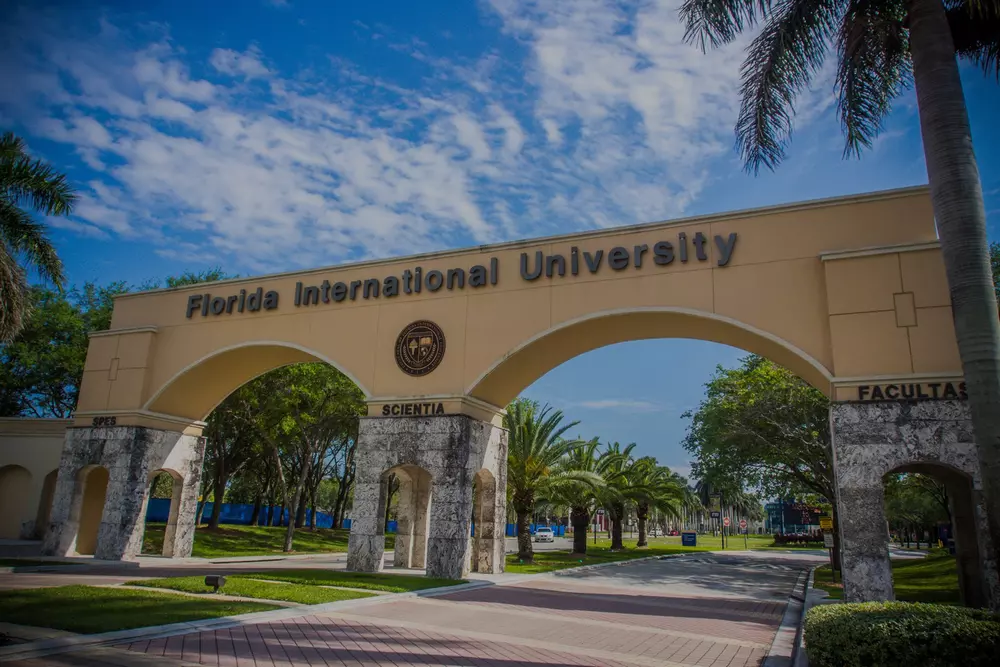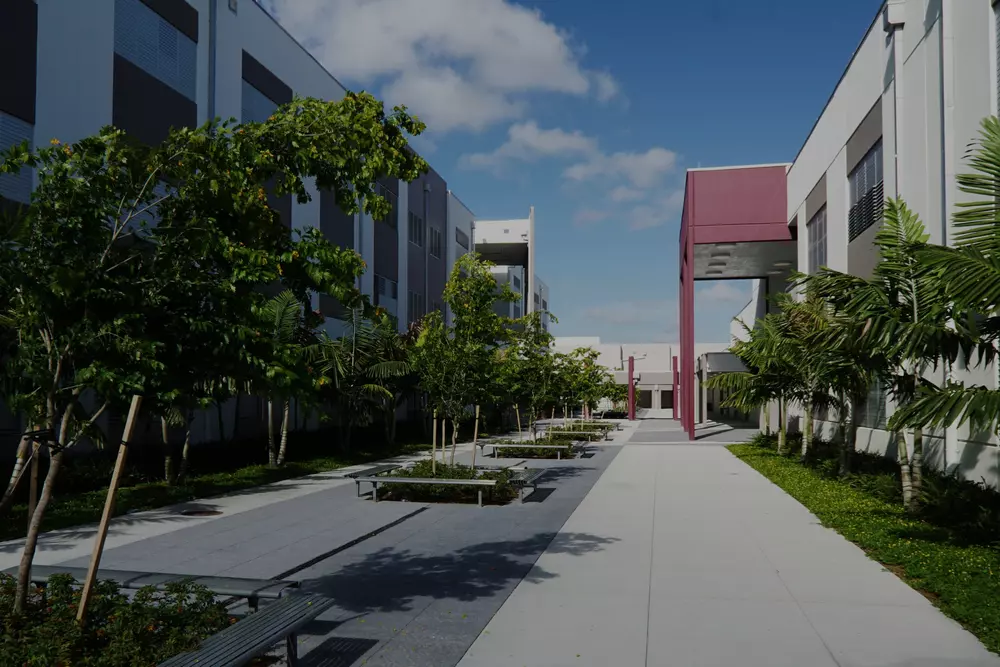Miami-Dade College

Miami-Dade College
When it comes to education in the USA, most people immediately think of the same names: Harvard, Yale, Princeton, Stanford. These universities are surrounded by an aura of elitism and prestige, but getting in is no easy task. The competition is fierce, tuition is sky-high, and the application process requires near-Olympic-level preparation. Yet America is a land of opportunities. And there are other educational institutions that are just as worthy, and in some ways even more open, accessible, and modern. One such center of education is Miami Dade College (MDC) — the largest college in the USA, with over 160,000 students.
Today we will take a closer look at this unique institution, its history, programs, campuses, costs, and prospects. Most importantly — how American Butler can help you open the door to the world of American education.
Why Choose MDC
- Affordability
Tuition is significantly lower than at prestigious universities. - Flexibility
You can study either on-campus or online. - Opportunities
Graduates can easily transfer to other universities and secure prestigious positions. - Diversity
Over 300 programs and areas of study. - Openness
The college accepts students from all over the world.
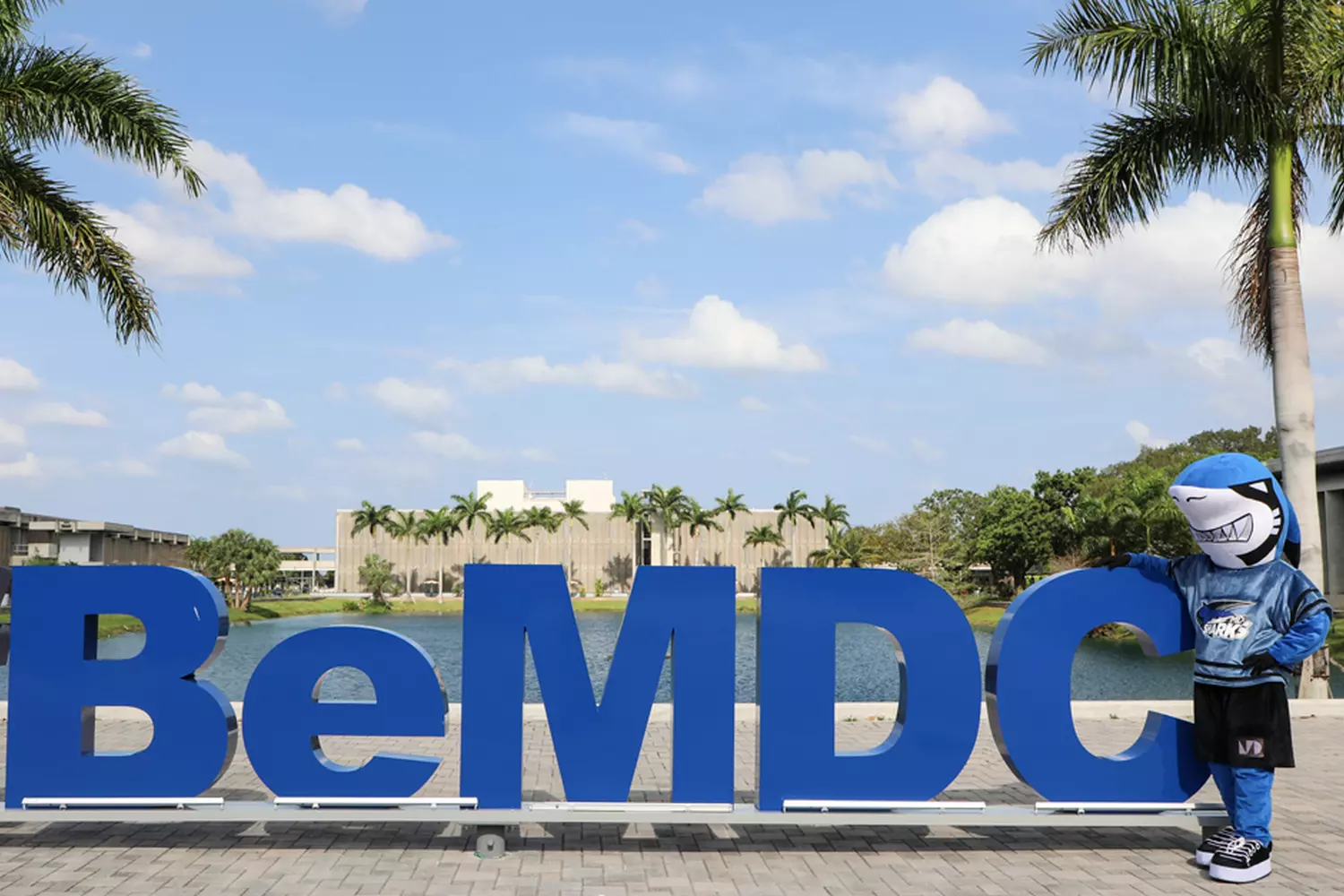
Miami Dade College is famous as the place where celebrities like singer Gloria Estefan and actor Andy Garcia studied and performed. The college takes pride in its alumni, many of whom have achieved worldwide success.
История колледжа: от фермы до крупнейшего вуза
Miami Dade College was founded in 1959 and held its first classes in 1960. The campus was built on the site of a former farm and Miami high school. Symbolically, the college literally grew “from scratch,” becoming the foundation for tens of thousands of students in the future.
From the very beginning, the college became a symbol of openness and integration. At a time when the United States was still experiencing the turbulent era of the civil rights movement, MDC was the first in Florida to accept African American and Cuban immigrant students. For many, this was a chance for education and a new life — where other doors were closed.
- Initially, the college offered two-year programs in applied specialties. But demand was so high that by the 1960s, MDC expanded its programs, adding new fields of study and increasing the number of faculty. By the early 1970s, the student community had grown significantly, and the college gained the status of the largest educational institution in Florida.
- A significant milestone was the opening of the Wolfson Campus in 1973, right in the heart of Miami. This campus was designed as the flagship, and over time it became home to innovative programs in business, technology, and the arts.
- The following decades were marked by rapid growth. In the 1980s, MDC actively expanded its international connections, and in the 1990s it opened new campuses specializing in medicine, education, and engineering. During this period, the college also began accepting exchange students from Europe and Latin America for the first time.
Today, Miami Dade College is not just a college but the largest educational network recognized worldwide. Its system of campuses spans various areas of Miami-Dade, providing access to knowledge for students from diverse social and cultural backgrounds. MDC prides itself on its motto: “Open Doors for All”, and it is this philosophy that helped it grow from a small two-year institution into a leading center of education in the United States.
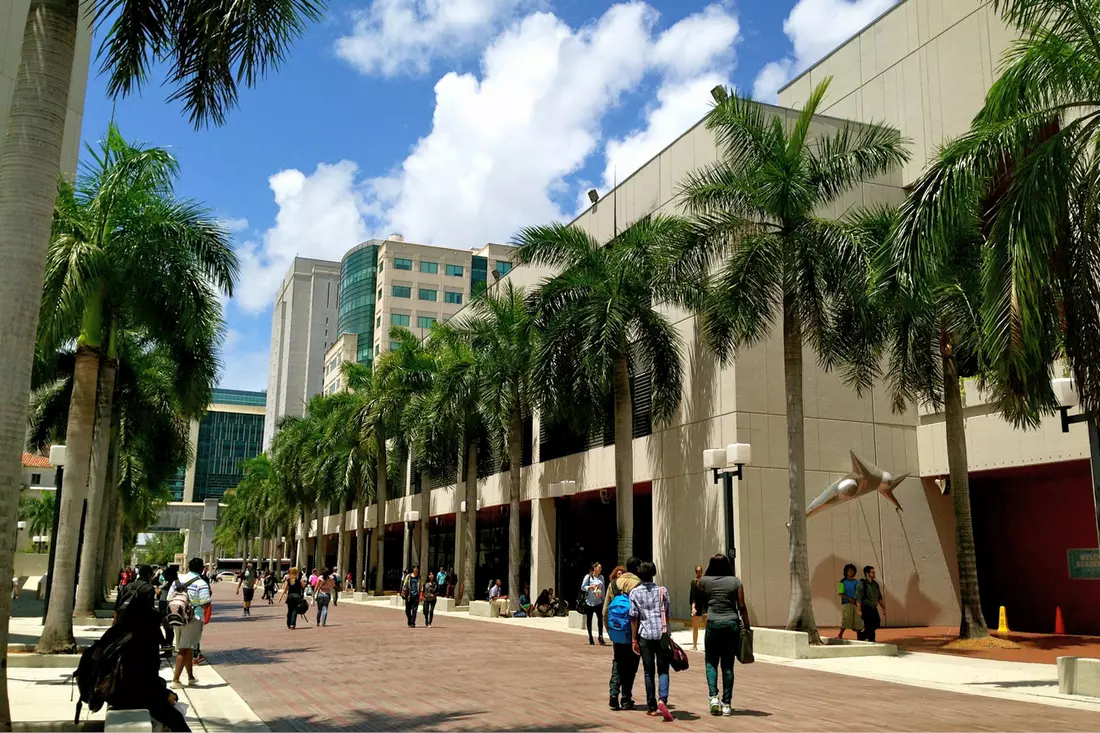
The scale is impressive
Today, Miami Dade College enrolls more than 161,000 students — more than the population of cities like Riga or Padua. The college has become a true “city within a city,” with 8 full campuses and a network of learning centers spread across Miami-Dade County.
Each campus has its own character and specialization:
- 01. North Campus
The “cradle of professionals,” training future doctors, police officers, and firefighters. It features training grounds for emergency services, ambulance simulators, and even a full training center for future officers. - 02. Kendall Campus
The sports heart of MDC. National college teams train here, and the campus includes modern stadiums, swimming pools, and a program for training athletic coaches. - 03. Wolfson Campus
The flagship campus in downtown Miami. Here are concentrated programs in business, finance, IT, and media. The campus is next to the Downtown skyscrapers, creating the feel of a real business metropolis. - 04. Medical Campus
Located near Miami’s largest clinics, where future doctors, nurses, and pharmacists gain hands-on practice. Classrooms are equipped like operating rooms and laboratories. - 05. InterAmerican Campus
Main center for pedagogy and language training. Future teachers, translators, and bilingual education specialists study here — fittingly located in an area with a large Spanish-speaking population. - 06. Homestead Campus
The southern gateway of MDC, focusing on agricultural sciences, ecology, and aviation. It features greenhouses, teaching farms, and even a runway for future pilots. - 07. West Campus
The “laboratory of the future,” developing programs in engineering, robotics, cybersecurity, and artificial intelligence.
MDC doesn’t just assign students to buildings — each campus is a world of its own, forming communities, culture, and professional environments.
Open Door Policy
Miami Dade College is rightly called one of the most democratic educational institutions in America. Its philosophy is based on the principle of an “open door policy”, meaning that almost anyone willing to learn and grow has the chance to receive an education here.
Unlike elite universities with fierce competition, endless essays, and expensive preparatory courses, MDC does not set insurmountable barriers. To become a student, one only needs to:
- Provide proof of high school completion;
- Demonstrate financial capability (for international students);
- Take a basic Computerized Placement Test (CPT) to determine English and math proficiency.
Based on the test results, students are placed at appropriate levels so that everyone can start learning from the level that suits them. If knowledge gaps exist, students can take foundation courses to improve English or math before moving on to more advanced subjects.
Since 2002, the college has actively developed a gifted student support program:
- Scholarships covering part of tuition;
- Special research and creative projects;
- Opportunities for internships and joint programs with universities in Florida and other states.
Until 2003, Miami Dade College was primarily a “two-year college,” granting Associate Degrees. Today, MDC offers further study:
- Some programs lead to a bachelor’s degree;
- Graduates can automatically transfer to partner universities, such as Florida International University (FIU) or University of Miami;
- For international students, this is particularly convenient: start in Miami is easier and more affordable, then continue to top U.S. universities.
Who benefits most?
- Those just learning English: the college helps them adapt smoothly;
- Immigrants and first-generation college students: diversity and the pursuit of knowledge are valued here;
- Talented high school students who want a career but cannot afford $60,000 per year at an Ivy League school.
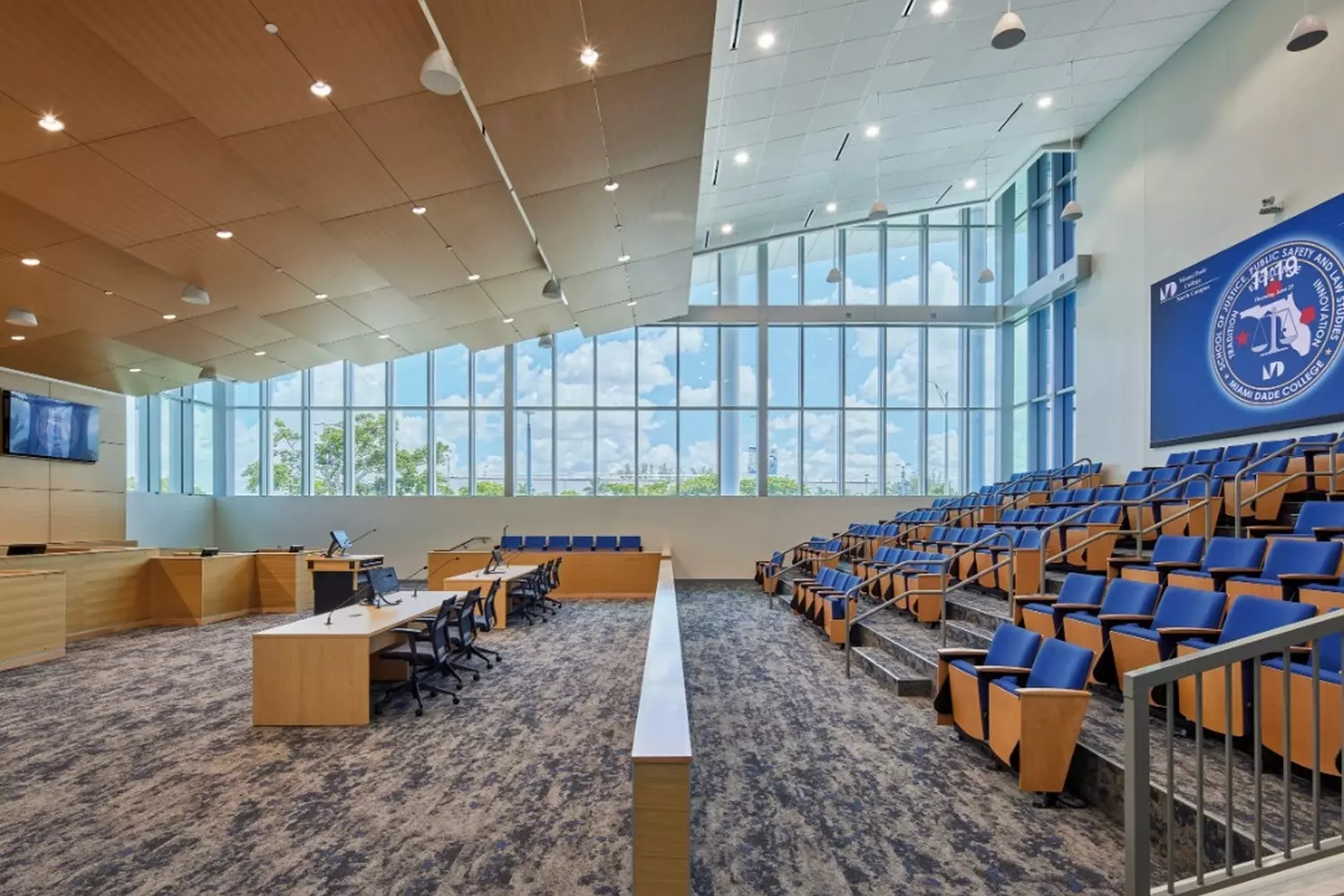
Majors and fields of study
Miami Dade College is truly versatile: you can find almost any program here, from classical humanities to cutting-edge technologies. The college offers over 300 educational programs, including short-term courses and full bachelor’s degrees.
- 01. Business and Finance
MDC is known for its strong business school. Students study management, marketing, international trade, banking, and accounting.
- The program includes real case studies from Florida and Latin American economies.
- Many courses are taught by entrepreneurs and industry professionals.
- Students can participate in MDC’s business incubator, launching their own startups.
- 02. Information Technology and Cybersecurity
The college keeps pace with modern demands, training specialists in cybersecurity, programming, web development, and artificial intelligence.
- Laboratories are equipped with modern servers and security systems.
- Programs are aligned with Miami employers, especially in fintech and IT sectors.
- Students complete internships in tech companies and startups.
- 03. Medicine and Pharmacy
MDC is traditionally considered a leading U.S. college for training nurses and mid-level healthcare professionals.
- Training covers both patient care and pharmaceutical studies.
- There is a dedicated Medical Campus where students practice on simulators and in clinical settings.
- Many graduates continue into medical schools to become physicians.
- 04. Aviation and Engineering
A unique field for the college is aviation.
- At Homestead Campus, students train on flight simulators.
- They can pursue careers as pilots, air traffic controllers, or mechanical engineers.
- Programs are accredited by the Federal Aviation Administration (FAA).
- 05. Arts, Music, and Theater
Miami Dade College is known for its New World School of the Arts, a unique program preparing future actors, musicians, visual artists, and dancers.
- Graduates participate in festivals, exhibitions, and theater productions.
- The college collaborates closely with Miami cultural centers.
- Alumni include world-renowned actors and musicians.
- 06. Law Enforcement
MDC trains specialists for police, fire departments, and forensics.
- The North Campus houses a Law Enforcement Training Center.
- Students intern with the Miami Police and fire departments.
- Programs cover criminology, forensic science, and public safety.
- Strong emphasis on bilingual education (English + Spanish).
- Students study teaching methods for immigrant children.
- Graduates easily find jobs in educational institutions.
- 08. Design and Entertainment Technology
A special pride of the college is programs related to film, television, and digital media.
- Students study graphic design, animation, editing, directing, and sound engineering.
- Miami is a major hub for film and TV production, providing extensive hands-on practice.
- MDC organizes the annual Miami Film Festival, attracting directors and producers from around the world.
- 09. Online Campus
Modern students can study from anywhere in the world. MDC’s online platform offers dozens of remote programs:
- Flexible class schedules;
- Access to digital libraries and online labs;
- The ability to combine study with work.
For international students, this is a convenient way to start an American education journey and then continue at Miami campuses.
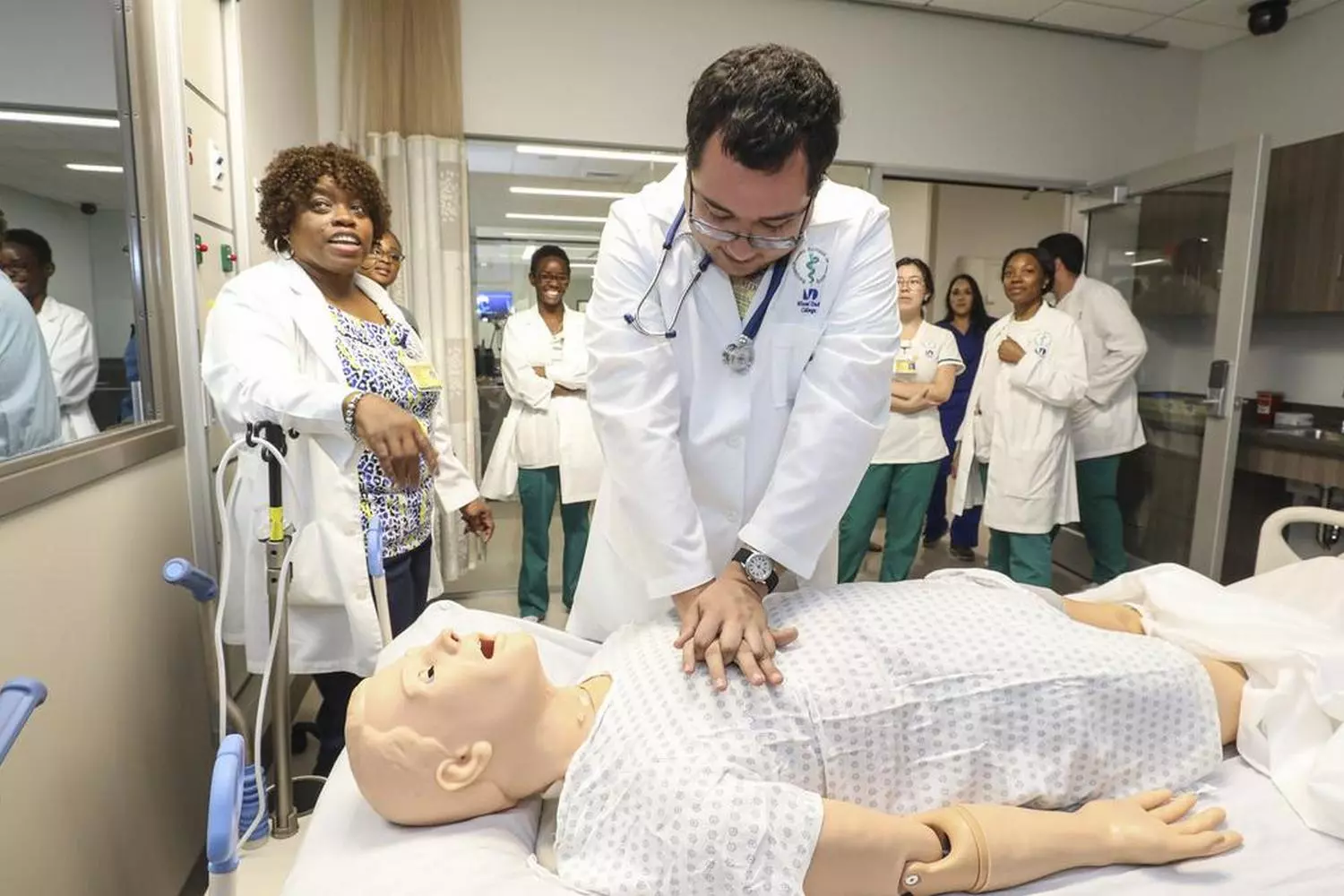
Student life: more than just studying
Miami Dade College is more than just classrooms and exams. It’s a whole small world where everyone can find their place. Students have access to more than 60 clubs and organizations, ranging from debate and environmental groups to student media and IT communities.
- 01. Student Organizations
- Cultural clubs cater to various interests, from the Latin American Union to the Asian Student Association.
- There are debate clubs, journalism groups, and even student-run radio stations.
- MDC’s student government actively participates in campus life and organizes city-wide events.
- 02. Sports and Active Lifestyle
- The college has teams in basketball, baseball, volleyball, and other sports.
- Students compete in regional and national tournaments, and athletic scholarships allow talented athletes to study for free or at a significant discount.
- Campuses feature modern gyms, pools, and fitness centers.
- 03. Arts and Creativity
- Theater productions and music concerts are regularly held on campus.
- The New World School of the Arts trains talented actors, directors, musicians, and artists.
- Each year, MDC hosts the Miami Film Festival, one of the largest film events in the U.S.
- 04. Startups and Innovation
- The college has a business incubator where students can launch their own projects.
- Many alumni have founded companies in IT, design, and Miami’s service industry.
- Hackathons and startup competitions are organized through accelerators.
- 05. Miami as an Open-Air Campus
- The city itself becomes part of student life.
- After classes, students can stroll along the waterfront, relax on South Beach, visit exhibitions in Wynwood, or attend concerts at Biscayne Bay.
- Miami is a cultural crossroads, making it easy to meet friends from around the world and build valuable connections for future careers.
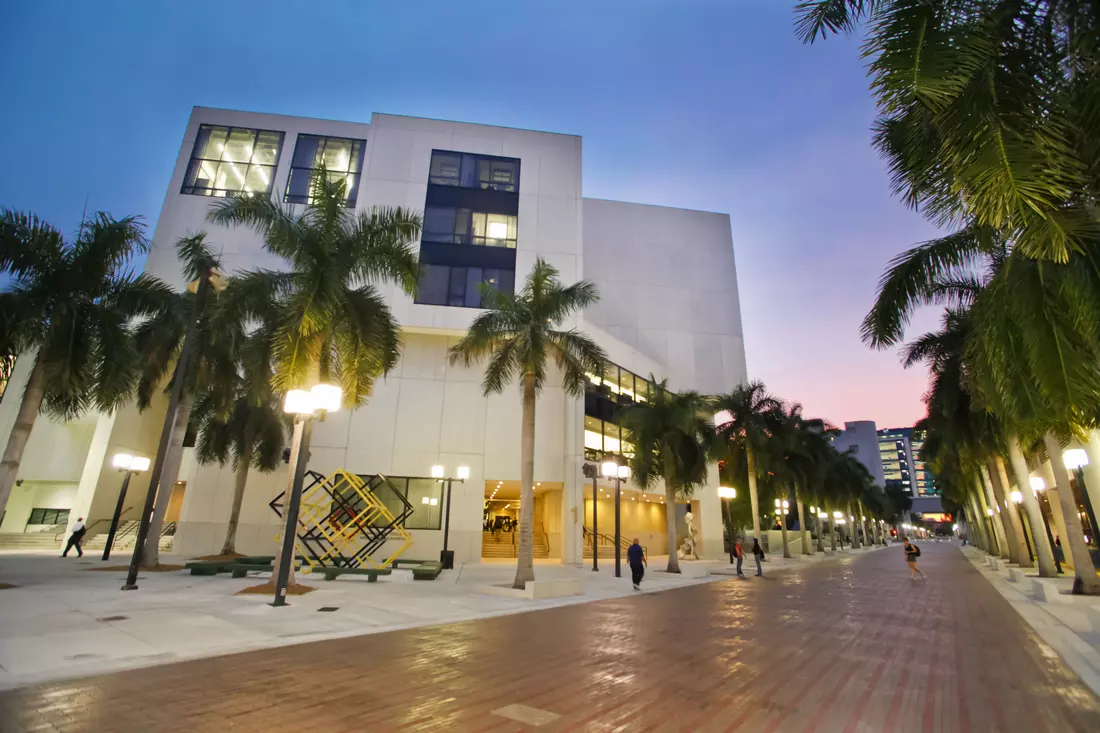
Take a step toward your dream with American Butler
Miami Dade College is your chance to receive a high-quality American education without needing millions in the bank or enduring the grueling race to get into the Ivy League. This institution is perfect for those who value knowledge, want to build a career, and be part of an international community.
American Butler will guide you through the entire admissions process: from choosing a program and preparing documents to obtaining a visa and organizing your trip. We know all the nuances, speak your language, and will be your reliable partner on the ground.
Want to study in the USA? Start with Miami Dade College together with American Butler — and bring your future success closer.
Information
Cost
-
College Credit Programs
- Residents — $1420/semester;
- Non-resident — $4830/semester.
-
Undergraduate
- Residents — $1560/semester;
- Non-resident — $6430/semester.
-
Professional and career development programs
- Residents — $1090/semester;
- Non-resident — $4260/semester.
-
Additional Costs
- Application fee — $30 for new students, non-refundable.
- Application fee for transfer into a bachelor’s program — $25.
- Estimated annual living expenses (housing, food, transportation, personal needs) for Associate Degree programs — approximately $33,000.
- For Bachelor’s programs — around $37,000 per year (sometimes slightly higher).
- Books and study materials — about $1,500 per year.
- International students must show proof of financial resources (bank statement) to cover all first-year expenses — approximately $33,000–37,000, depending on the program.
- Insurance, medical expenses, and visa costs are not included in the base tuition, but are mandatory.
- Scholarships, discounts, and aid programs may be available to reduce costs, especially for talented students or Florida residents.
| College Credit Programs |
|
| Undergraduate |
|
| Professional and career development programs |
|
| Additional Costs |
|












